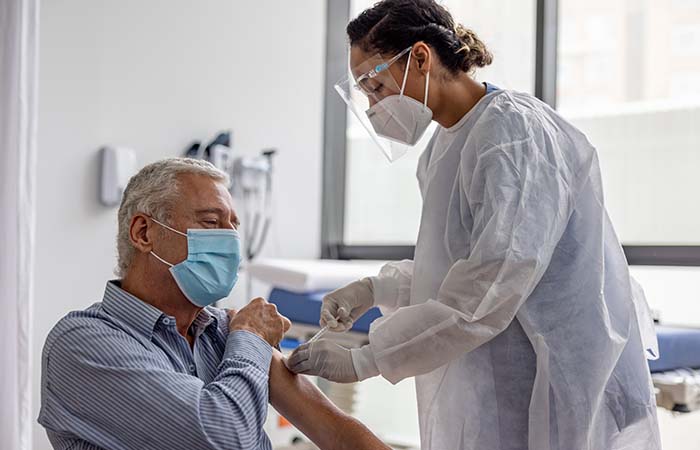MHRA approves first bivalent Covid booster jab
In Clinical
Follow this topic
Bookmark
Record learning outcomes
The MHRA has today (August 15) approved the first bivalent Covid-19 booster vaccine after it was found to be safe and effective.
The product, an “updated” version of the Moderna vaccine, targets both the original 2020 virus strain and the more recent Omicron variant, triggering a “strong immune response against both,” said the MHRA, adding that it also kickstarts a “good immune response” against Omicron sub-variant BA.4 and BA.5.
The regulator said the side effects of the bivalent vaccine are mild and self-resolving, as with the original Moderna product.
The joint committee on vaccination and immunisation (JCVI) will issue guidance on how the new product should be incorporated into the booster vaccine rollout programme.
MHRA chief executive Dr June Raine said: “I am pleased to announce the approval of the Moderna bivalent booster vaccine, which was found in the clinical trial to provide a strong immune response against the Omicron BA.1 variant as well as the original 2020 strain.
“The first generation of Covid-19 vaccines being used in the UK continue to provide important protection against the disease and save lives. What this bivalent vaccine gives us is a sharpened tool in our armoury to help protect us against this disease as the virus continues to evolve.
“We have in place a comprehensive safety surveillance strategy for monitoring the safety of all UK-approved Covid-19 vaccines and this will include the vaccine approved today.”
Professor Sir Munir Pirmohamed, chair of the Commission on Human Medicines, said: “The Commission on Human Medicines and its COVID-19 Vaccines Expert Working Group has independently reviewed the data on safety, quality and effectiveness and agrees with the MHRA’s decision.”
“The virus, SARS-CoV-2, is continually evolving in order to evade the immunity provided by vaccines. This novel bivalent vaccine represents the next step in the development of vaccines to combat the virus, with its ability to lead to a broader immune response than the original vaccine.”

